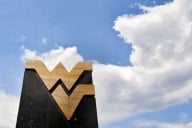You have /5 articles left.
Sign up for a free account or log in.
Peer pressure is a powerful force, and not always to the good, as anyone who works with young people on issues of substance abuse or hazing knows all too well. Questions about the effects of peers in an academic context typically focus on whether positive "peer effects" pull students' academic performance up, or whether negative ones drag it down. But a new study by a trio of international researchers finds that college undergraduates let their peers influence their choice of major, often leading them into careers that were not best suited to their skills -- and ultimately diminished their income.
The provocatively titled "Be as Careful of the Company You Keep as of the Books You Read: Peer Effects in Education and on the Labor Market," was released this week by the National Bureau of Economic Research and conducted by scholars at Stanford University, the World Bank, and Italy's Bocconi University. The researchers track a group of undergraduate business students at the Italian university who, like all students in their first three semesters there, were randomly assigned to class sections in their compulsory courses. That process of "repeated random allocation" helped give the researchers a difficult-to-replicate set of circumstances for accurately analyzing peer effects, they write.
After the first three semesters in Bocconi's business program, undergraduates chose one of two majors: business or economics (the vast majority choose business). The researchers find that having a "restricted" peer (one with whom a student shared at least four of the nine randomly assigned courses) choose economics increased an individual student's chances of majoring in economics by 7.4 percentage points.
That finding alone would probably not surprise or alarm anyone, given the common wisdom that young people are heavily influenced by their peers. But the researchers dig more deeply into the effects that the students' choices have on their own success, and there the results grow a bit more troubling.
They divide the undergraduates into four categories: the "ability driven" (meaning that they appear to have chosen their majors based largely on how they performed on exams in various subjects during the first half of college), "peer driven" (those whose choice of major was consistent with the majority of their close peers, but seemed to conflict with their abilities), "coherent" (those whose major choice was consistent with both their own ability and their peers' choice) and the "incoherent" (those whose major choice seemed inconsistent with their abilities and their peers' selections).
The researchers find "clear evidence that peer driven students on average perform worse than the ability driven in terms of both average and final grade," though they acknowledge that the "effect is small in magnitude" -- about two-tenths of a grade point on a 30 point grade scale.
Following the graduates into the work force, the researchers looked for signs of "mismatch" -- evidence that their chosen career, to the extent it is based on their choice of major, might not best suit them. There, the results show that the peer driven students earned about 13 percent less than their ability driven peers, and that -- based on answers to an alumni questionnaire -- they were much likelier than other students to feel "mismatched" in their first job, and to have encounter difficulties in that job.
The researchers say that they are reluctant to draw any significant conclusions about policy changes that might flow from their findings, such as encouraging colleges to provide better advising about majors. But if the study's results hold up, students might be encouraged to think for themselves.









